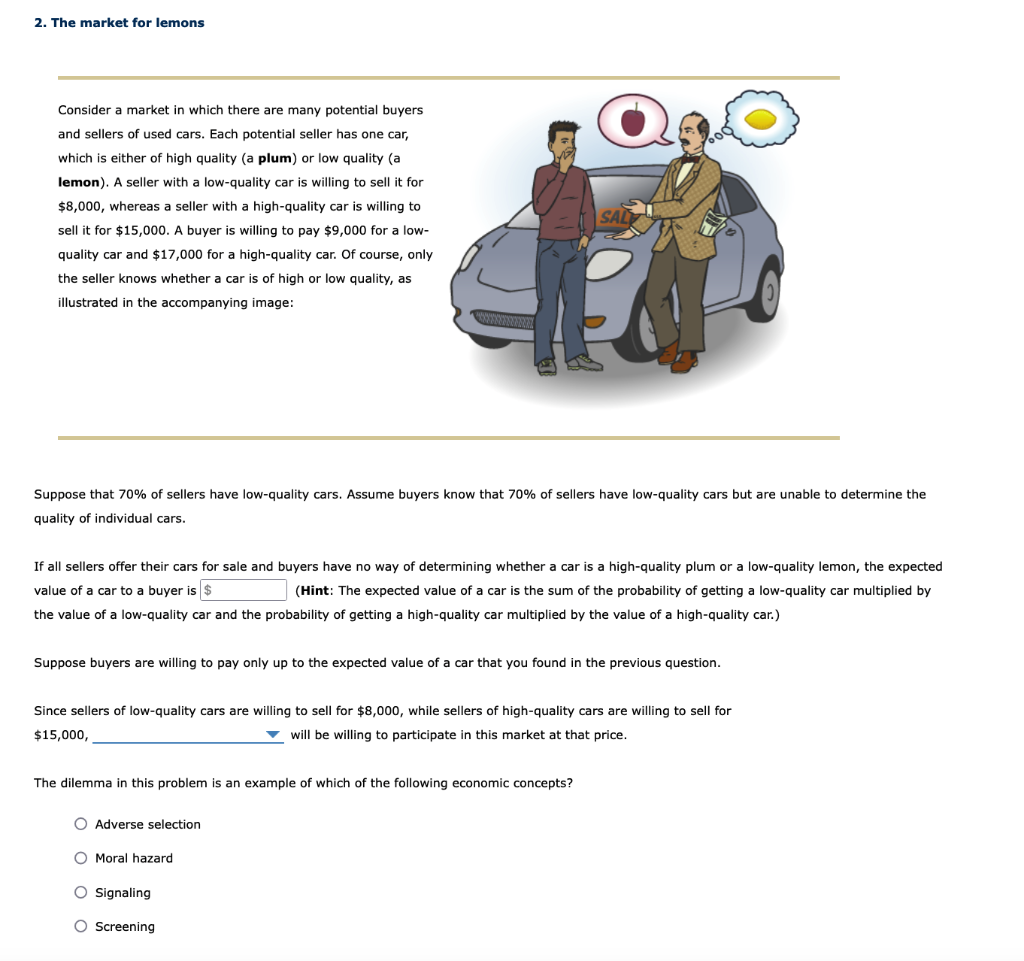Home /
Expert Answers /
Economics /
2-the-market-for-lemons-consider-a-market-in-which-there-are-many-potential-buyers-and-sellers-of-pa593
(Solved): 2. The market for lemons Consider a market in which there are many potential buyers and sellers of ...
2. The market for lemons Consider a market in which there are many potential buyers and sellers of used cars. Each potential seller has one car, which is either of high quality (a plum) or low quality (a lemon). A seller with a low-quality car is willing to sell it for \( \$ 8,000 \), whereas a seller with a high-quality car is willing to sell it for \( \$ 15,000 \). A buyer is willing to pay \( \$ 9,000 \) for a lowquality car and \( \$ 17,000 \) for a high-quality car. Of course, only the seller knows whether a car is of high or low quality, as illustrated in the accompanying image: Suppose that \( 70 \% \) of sellers have low-quality cars. Assume buyers know that \( 70 \% \) of sellers have low-quality cars but are unable to determine the quality of individual cars. If all sellers offer their cars for sale and buyers have no way of determining whether a car is a high-quality plum or a low-quality lemon, the expected value of a car to a buyer is (Hint: The expected value of a car is the sum of the probability of getting a low-quality car multiplied by the value of a low-quality car and the probability of getting a high-quality car multiplied by the value of a high-quality car.) Suppose buyers are willing to pay only up to the expected value of a car that you found in the previous question. Since sellers of low-quality cars are willing to sell for \( \$ 8,000 \), while sellers of high-quality cars are willing to sell for \( \$ 15,000 \), will be willing to participate in this market at that price. The dilemma in this problem is an example of which of the following economic concepts? Adverse selection Moral hazard Signaling Screening
Expert Answer
Asymmetric information When one party to a transaction has access to more information than the other, this situation is referred to as having "asymmet
